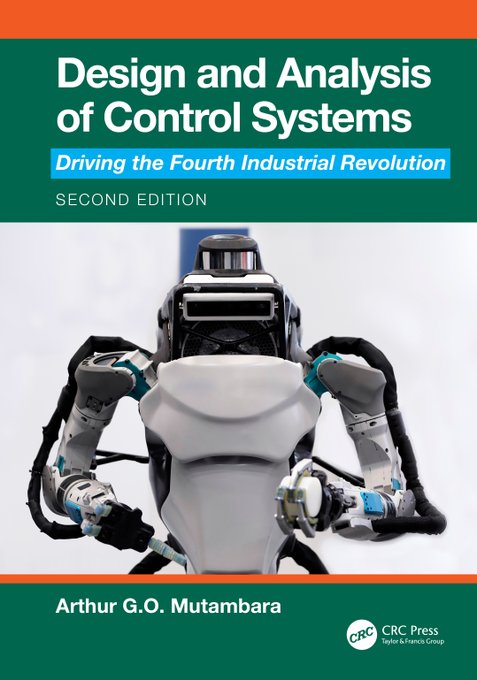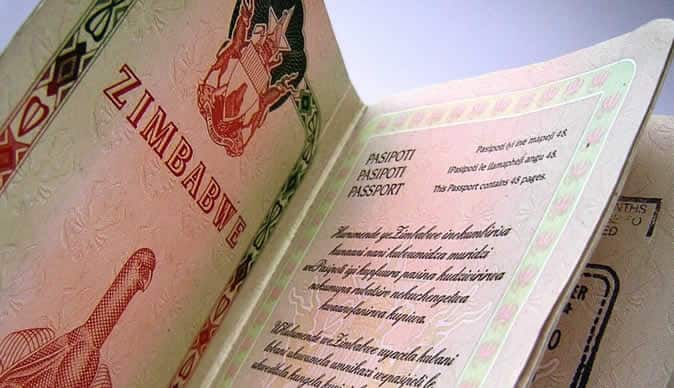Keynote Address By Advocate by Jacob F. Mudenda, (Speaker of the National Assembly)
At
The Official Launch of the Zimbabwe Human Rights Commission Report on the National Inquiry on Access to Personal Documentation.
30 September 2020
(Meikles Hotel, Harare)
The Chairperson of the Zimbabwe Human Rights Commission, Commissioner Dr. Elasto Hilarious Mugwadi;
Honourable Ministers;
Honourable Members of Parliament;
Commissioners of the Zimbabwe Human Rights Commission;
Independent Commissions here present;
The President and Members of the Chiefs Council of Zimbabwe;
Heads of Government Ministries and Departments;
Civil Society and Media Organisations amongst us; Development Partners;
Esteemed Guests;
Ladies and Gentlemen;
Let me preface my interface with you on this auspicious launch of the Human Rights Commission’s National Inquiry on Access To Documentation Report in Zimbabwe by hailing the Commission’s sterling achievement in compiling such a thought provoking compendium.
The compendium is a grand milestone in preserving the “A” status of the Commission.
However, more critically your Report addresses salient infringement of human rights regarding lack of access to five personal identity documents, namely, the birth certificates, the national identity cards, passports, death certificates and citizenship status.
Your comprehensive Report which arises from some comprehensive empirical research findings conducted in all districts and the 10 provinces of our country involved no less than 741 stakeholders, 20 564 respondents, 7544 written submissions from individuals and 191 written submissions from stakeholders.
Such an extensive and intensive research underscores the tenacity of the Zimbabwe Human Rights Commission (ZHRC) in its endeavor to actualize its constitutional mandate in terms of section 243(1)(j) of the Constitution.
Very few Human Rights Commissions, if any, have achieved such greater heights in protecting and promoting human rights that accentuate human dignity, especially the respect of self-identification and personhood of people who have not been enabled to access personal identity documentation.
These primary rights form the epicentre of our human identity as human beings and are inalienable, universal, indivisible and are interdependent as they define our personal existentialism.
Ladies and Gentlemen,
Such defining primary rights underpin the human ego, that person’s sense of self-esteem which affirms the human being’s worthiness in the community of the living and the departed.
The denial, therefore, of such primary rights which anchor the self-identity of individuals should never be attenuated through lack of access to the fundamental personal documentation.
To that an extent, we must be reminded of the eternal conviction by the former late President John F. Kennedy that “the rights of every man (woman) are diminished when the rights of one man (woman) are threatened”.
Deny a person his/ her right to a birth certificate, you have diminished their filial umbilical cord with no trace to their progeny in violation of section 81 of the Constitution which affirms the rights of children.
The Zimbabwe Government acknowledged these children’s rights by ratifying the Convention on the Rights of Children (CRC) and the 1954 Convention relating to the status of Stateless Persons.
However, it is disheartening to note that Zimbabwe is not party to the 1961 Convention on Reduction of Statelessness. One hopes that this lacuna will be corrected soonest.
A person without a birth certificate and an identity card is stateless, and worse still, has no claim to citizenship inclusive of the attendant citizenship rights.
One becomes unwittingly a foreigner in the land of one’s birth. This is an unwarranted dehumanization, an injury to one’s well-being and ego.
Relatedly, a passport is right not a privilege. It is a right that affirms the concomitant right of freedom of movement and residence as provided in Section 66 of the Constitution which enjoins thus:-
“66 Freedom of movement and residence
(1) Every Zimbabwean citizen has—
(a) the right to enter Zimbabwe;
(b) immunity from expulsion from Zimbabwe; and
(c) the right to a passport or other travel document.
(2) Every Zimbabwean citizen and everyone else who is
legally in Zimbabwe has the right to—
(a) move freely within Zimbabwe;
(b) reside in any part of Zimbabwe; and
(c) leave Zimbabwe”.
Ladies and Gentlemen,
Citizenship is a constitutional entitlement which bolsters access to a passport in respect to the right of freedom of movement and residence. Section 35(3) of the Constitution peremptorily affirms that:-
“(3) All Zimbabwean citizens are entitled to the following rights and benefits, in addition to any others granted to them by law—
(a) to the protection of the State wherever they may be;
(b) to passports and other travel documents; and
(c) to birth certificates and other identity documents
issued by the State”.
Accordingly, it is axiomatic that access to personal national documentation is a fundamental human right and forms a solid foundation for the enjoyment of many other interrelated rights as demonstrated earlier.
It is consequential that personal identity documents establish the legal relationship between a citizen and his or her country and they give rise to other related rights and obligations for both the person and the State.
In light of this, the lack of access to personal documentation can no more be aptly defined than by Rittel and Weber’s (1973) supposition that it is indeed a “Wicked Problem”.
History has taught us that the advent of this problem dates as far back as the colonial era where Zimbabwean citizens had limited access to documentation resulting in them being denied full rights and freedoms, including the right to vote as citizens.
Likewise, in the two decades of our liberation struggle, victims and survivors of the freedom war also faced immense challenges in accessing national documentation.
More so, following the Gukurahundi disturbances in the Matabeleland and Midlands region, many of the victims could not access birth certificates and death registration certificates from the Registrar General’s offices resulting in generations of undocumented persons who could not fully enjoy their rights and freedoms.
However, Government must be applauded for trying now to put in place measures to remedy the situation speedily.
These efforts must be collaboratively supported by the rich research findings of the Human Rights Commission working in close conjunction with National Peace and Reconciliation Commission.
This national responsibility must be consummated without hesitation in the common interest of consensus nation building.
Ladies and Gentlemen,
Against the narrative opined above, this ceremony would be fruitless if it does not acquiesce to the objectives of the launch of the Report on National Inquiry On Access To Documentation In Zimbabwe.
These are:
1) To launch the National Inquiry Report and share with stakeholders the findings contained in the report. The findings must be dissected and digested with the greatest degree of animation.
2) To publicise the National Inquiry Report in order to facilitate its dissemination. This Report should not be an archival dinosaur. It must reach out to all corners of Zimbabwe. Funds permitting, it must be available in the Vernacular languages.
3) To raise awareness of the underlying issues that cause challenges in accessing documentation with a view to initiating discussion on the need for legislative and policy reforms.
The cause of the challenges should stimulate practical solutions to cure the mischief of inaccess to personal identity documents. The expected solutions must be couched in progressive legislative and people centred policy reforms that are implementable.
4) To revise strategies for further collaboration between ZHRC and key stakeholders towards implementation of recommendations of the National Inquiry Report. Such revised strategies must go beyond the theoretical matrix in order to allow for the ownership of the Report by the affected citizenry as a measure towards ameliorated implementation efforts.
Ladies and Gentlemen,
You may be aware that Section 119(2) of the Constitution of Zimbabwe enjoins Parliament to discharge its oversight role on all State institutions, including the Chapter 12 Commissions.
This is in consonant with the critical responsibility that Parliament plays in upholding and protecting the fundamental rights, principles and values on which Zimbabwe is founded as espoused in Section 3 and the Bill of Rights in Chapter 4 of the Constitution.
But to efficiently and effectively discharge this constitutional mandate, it is prudent that Commissions such as the ZHRC submit their annual reports to Parliament as Section 323 of the Constitution stipulates that:-
“(1) Every Commission must submit to Parliament, through the responsible Minister, an annual report describing fully its operations and activities, the report being submitted not later than the end of March in the year following the year to which the report relates.
(2) An Act of Parliament may require a Commission to submit further reports in addition to the annual report specified in subsection (1), and may prescribe the way in which such reports are to be submitted”.
Furthermore, Section 8(3) of the Zimbabwe Human Rights Commission Act (Cap 10:30) provides that;
“(3) The Minister shall table before Parliament any report submitted to him or her by the Commission under subsections (1) and (2), no later than the thirtieth sitting day of whichever House of Parliament sits first after he or she has received such report”.
Essentially, Section 323 of the Constitution of Zimbabwe as read together with Section 8(3) of the Zimbabwe Human Rights Commission Act (Cap 10:30) demands that the Commission submits annual reports and other reports to Parliament through the respective Minister within the next three months of the proceeding year for the annual Report or 30 days after completing an ordinary report such as this research Report.
I am aware that the Commission has reneged on its judicious discharge of this critical constitutional duty as the 2018 and 2019 Annual Reports have not been tabled before Parliament.
As such, allow me to throw down the gauntlet on the Commission to ensure that the outstanding annual reports and this one we are launching today will be expeditiously tabled before Parliament.
It would be remiss of me not to be emphatic in reminding the Commission of its incontrovertible injunction of being accountable to Parliament for its efficient performance of the assigned constitutional mandate as provided for in Sections 232, 233, 235, 243 and 244 of our Constitution.
Ladies and Gentlemen,
Let me conclude by rendering my profound congratulations to the Zimbabwe Human Rights Commission on the Official Launch of the Report on the National Inquiry on Access to Documentation in Zimbabwe.
Be comforted and inspired by our philosophical proverbs, namely, that “Chitsva Chirimurutsoka: or “Okubekayo ngohambayo” or “Kulimusimbi mubotu takulampi pee”! It now behoves me to officially launch the Report on the National Inquiry on Access to Documentation.
TINOTENDA!!
TWALUMBA!!
SIYABONGA!!
I THANK YOU!!














